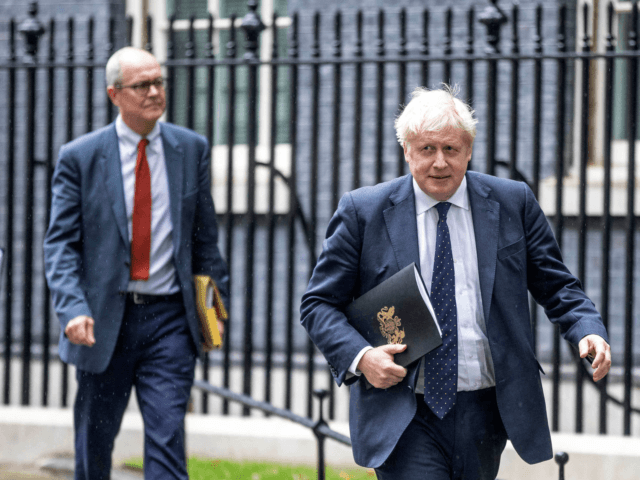People should eat less meat and travel less in order to save the planet from the alleged climate crisis, a scientist who became well known to the public as a face of the government’s coronavirus response has said.
Appearing before a House of Lords committee on Tuesday, Sir Patrick Vallance claimed that in light of climate change he has altered his diet and has opted to travel less and suggested that the public follow suit.
“I’m eating less meat, I cycle to work and I fly less than I used to,” the government’s top science advisor said according to The Telegraph. “I haven’t said I stopped flying or I don’t eat meat – I do. I think it’s about reduction, and appropriate reduction across society.”
Vallance, who rose to national prominence as his role as one of Prime Minister Boris Johnson’s top advisors during the Chinese coronavirus crisis, did go on to complain that there is too much fear-mongering surrounding the government’s Net Zero agenda, which seeks to radically transform the British economy to reduce carbon emissions almost entirely — “net zero” — by the year 2050.
“It’s important that the messaging [on climate change] isn’t designed to cause fear or upset,” Sir Patrick said, adding: “It should be about making sure people understand what the situation is.
“We should not aim to frighten people because that’s not helpful, but we should aim to enable people to understand what actions they can take,” he continued, noting that it is “unarguable” that the net zero agenda will force people to change their habits and lifestyle.
While the government has so far refrained from actually enforcing any such lifestyle restrictions, it has previously suggested imposing carbon taxes on meat and dairy imports. The government has also tasked the Behavioural Insights Team (BIT) — unofficially referred to as the “Nudge Unit” — to develop psychological means of persuading the public to fall in line with the green agenda.
Climate the New Corona? Britain’s Fauci Says Doctors Needed to Fight Air Pollution https://t.co/4h2PM6d2qt
— Breitbart London (@BreitbartLondon) February 18, 2022
The net zero agenda has come under escalated political scrutiny amid the rising cost of energy in the economic fallout from years of political mismanagement, two years of lockdowns, the war in Ukraine, and international sanctions on Russia.
Attempting to defend his left-wing Build Back Better agenda, Prime Minister Boris Johnson has cast opposition to his green push as “prejudice“.
“Actually green technology, green, sustainable electricity can help to reduce bills. Overall if you look at what we have done with renewables it has helped to reduce bills over the last few years and will continue to do so,” Johnson claimed.
However, according to analysis conducted by former House of Lords peer Matt Ridley, wind power projects receive some £6 billion in government subsidies per year, the majority of which come from taxes levied against household energy bills. Currently, 25 per cent of energy bills are forked over to the government to be spent on green schemes.
Despite being so heavily subsidised by the taxpayer, energy generated from wind turbines only accounted for four per cent of the nation’s primary energy demand in 2020, Viscount Ridley noted.
In response to the global energy crisis, the government has loosened restrictions on gas exploration in the North Sea and on nuclear, however, it has so far refused to lift the moratorium on fracking for natural gas.
Meanwhile, the House of Commons Public Accounts Committee reveals Boris's government has "no reliable estimate" of how much its #BuildBackBetter net-zero green policies are going to cost https://t.co/Pp7epw30w4
— Breitbart London (@BreitbartLondon) March 3, 2022
Follow Kurt Zindulka on Twitter here @KurtZindulka

COMMENTS
Please let us know if you're having issues with commenting.